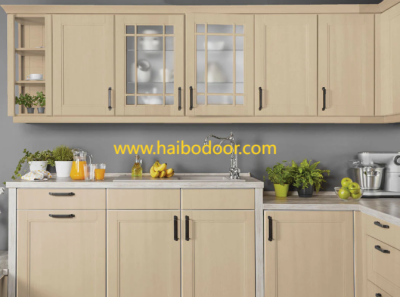How a Custom Cabinet Factory Meets Modern Commercial and Reside
-
As living and working environments continue to evolve, so do the storage and design solutions that support them. A Custom Cabinet Factory no longer just serves homeowners looking for kitchen upgrades—it also plays a vital role in shaping modern commercial interiors. From small-scale apartments to boutique hotels, co-working offices, and healthcare spaces, the demand for customized cabinetry reflects a broader shift toward function-tailored interiors.
In residential design, custom cabinets have become a symbol of optimized living. With smaller urban dwellings and growing emphasis on aesthetic continuity, clients seek made-to-measure storage that maximizes space without compromising visual appeal. Whether it's a floor-to-ceiling wardrobe that blends into the wall or an open-shelving concept that doubles as room dividers, custom cabinets offer design adaptability that off-the-shelf furniture often lacks.
On the commercial front, cabinet design has moved far beyond the breakroom. Offices today require collaborative layouts, with integrated storage that supports everything from digital equipment to paper filing and modular workstations. A custom cabinet factory can respond to these challenges with material diversity, scalable production capabilities, and technical knowledge of hardware systems suited to high-traffic areas. In hotels and retail spaces, brand-specific aesthetics are just as important as storage function. A good factory understands this balance—delivering cabinets that serve practical needs while visually aligning with the company’s identity.
Interestingly, the rise in demand is not only about space optimization, but also about user experience. Custom cabinetry now incorporates features like soft-close drawers, built-in lighting, antimicrobial surfaces, and even smart integrations. These innovations allow a custom cabinet factory to cater to both private and commercial clients who expect more from everyday furniture—hygiene, convenience, and long-term value.
Another trend is the growing preference for sustainable materials and production transparency. Clients increasingly ask where the wood is sourced, what coatings are used, and whether the factory follows low-emission practices. In response, modern manufacturers are investing in eco-conscious production lines and digital customization technologies that reduce waste and ensure accuracy. This has opened up opportunities for factories to become long-term design partners rather than just suppliers.
As the boundaries between living and working spaces blur, the importance of flexibility in interior design continues to grow. Whether for a home remodel or a retail build-out, the expertise of a custom cabinet factory can bridge the gap between creative vision and technical execution—delivering results that are as practical as they are personalized. For cabinet solutions tailored to your space, you can visit https://www.haibodoor.com/product/wpc-doors/ .
